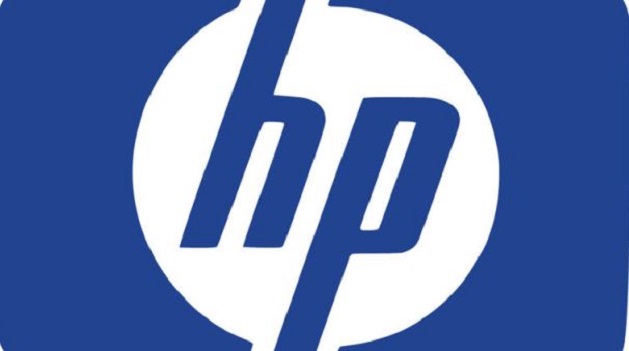E-Business
HP Study Finds Climate Crisis is Changing Parental Decisions on Purchasing, Careers, Family Size

HP has unveiled new global research conducted by Morning Consult revealing the serious actions many parents are taking due to climate change, from everyday decisions to long-term family planning.

The study among parents in India, Mexico, Singapore, United Kingdom and United States found that 91% of parents are concerned about the climate crisis, leading to changes that are reshaping their lives and purchasing habits.
More than half (53%) say it has impacted their perspective on having more children. Forty-three percent of respondents said they had reconsidered working for a company based on its commitment to environmental and social issues.
The research also found many parents favor companies that are taking action to address climate change. Nearly two-thirds (64%) of parents prefer products that are sustainably sourced and 60% say sustainable company practices play a large part in their purchasing habits.
That is despite the findings that the vast majority of parents (84%) acknowledge the cost of living is rising and more than half (57%) believe engaging in environmentally friendly practices takes up a lot of time.
“Families, like all our customers, rely on HP to connect them to the things that matter most, be it work, entertainment or loved ones,” said Michele Malejki, Global Head of Social Impact.
“It’s one of the reasons parents are top of mind for us. And like every generation before them, today’s parents have their own unique pressures, especially the climate crisis. It’s why we’re going beyond our business impact to make our business better for people and the planet.”
While parents are taking personal action, most also believe key players in the corporate world must act, too. Most parents (51%) believe that companies have “a lot” of responsibility in holding themselves accountable on climate action, as opposed to customers (36%).
“Our research correlates to what we see in our business: we are keeping customers, winning new sales, and attracting talent because of our Sustainable Impact initiatives and sustainable products,” said James McCall, Chief Sustainability Officer. “If we are serious about changing the trajectory of the climate crisis, industry must go beyond, changing the mindset of ‘do no harm’ to ‘do more good.’”
The findings come as HP releases its annual Sustainable Impact report for the twenty-second year. The report details the company’s progress toward comprehensive and bold environmental and social goals. HP has:
- Reduced its absolute carbon footprint by 18% since 2019. This brings the company closer to its goal to achieve net zero carbon emissions by 2040 – end to end.
- Reduced single-use plastic packaging by 55% compared to 2018.
- Counteracted deforestation for 32% of all paper used in HP products and services toward goal of 100%.
- Accelerated digital equity for more than 21 million people on path to 150 million by 2030.
- Committed to building a pipeline of diverse talent, with 46% of U.S. new hires last year from racial or ethnic minorities. HP aspires to be the most sustainable and just technology company. In 2021,
HP set aggressive Sustainable Impact goals in three areas where the company believes it can make the most difference – Climate Action, Human Rights and Digital Equity. The 2022 report details progress toward all three focus areas including a net zero carbon value chain, giving back more to forests than we take, creating a more circular economy, building a culture of equality and empowerment, and accelerating digital equity around the world to enable traditionally excluded communities to thrive in a digital economy.
E-Business
NCC Vows to Tackle Online Infringement, Block Illegal Music Websites

Nigerian Copyright Commission (NCC) has pledged to enforce its legal obligations to combat online intellectual property infringement and urged commercial music users to obtain proper licences from rights holders or their representatives.

The Commission stated that this ensures creators are fairly compensated, supporting the music industry’s sustainable growth.
In a statement commemorating the 2025 World Intellectual Property Day, themed “IP and Music: Feel the Best of IP,” the NCC announced plans to enforce the Copyright Act 2022, which allows for the takedown of infringing materials and blocking of websites hosting illegal content.
Signed by Mrs Ijeoma Egbunike, director of Public Affairs, the statement outlined an aggressive anti-piracy campaign in collaboration with the private sector, targeting the online environment.
Egbunike affirmed the NCC’s commitment to establishing enforceable standards for transparency, digital audits, and real-time royalty reporting to protect creators’ rights. She stated, “The NCC will continue to champion policies that support the growth of the music industry, improve the livelihoods of Nigerian musicians, and foster a culture of creativity and respect for intellectual property.”
Despite the global success of Afrobeats and other Nigerian genres, the NCC noted that many musicians face low royalty returns due to rampant digital piracy.
To address this, the Commission revised its Collective Management Regulations to enhance transparency and accountability among Collective Management Organisations (CMOs).
The NCC emphasised that proper licensing is a legal obligation and vital for Nigeria’s creative economy, stating, “Music must feel the beat of intellectual property for the full potential of creativity to be realised.”
The Commission highlighted that creators’ livelihoods depend on fair royalty compensation.
Recent enforcement measures include the NCC’s designation by the Attorney-General of the Federation as an authority under the Proceeds of Crime (Recovery and Management) Act 2022.
This, combined with the Copyright Act 2022, empowers the NCC to order takedowns and block illegal music distribution websites.
E-Business
FG Warns Nigerians Against Growing Threat of Cyber Slavery in West Africa

The Federal Government, has warned Nigerians against the growing threat of cyber slavery within the West African sub-region.
The Ministry of Foreign Affairs, in a statement issued in Abuja by Kimiebi Imomotimi Ebienfa, acting spokesperson, noted with grave concern the alarming rise of cyber slavery across parts of West Africa, targeting Nigerian citizens, particularly vulnerable youths.

The government said many young Nigerians, including underage teenagers, were lured out of the country under the false promise of lucrative employment opportunities abroad, particularly in crypto-related operations.
According to the government, “In reality, these individuals are trafficked into sophisticated scam operations and enslaved to work in criminal “call centres” — often referred to as “419 cyber-scam factories.” There, they are forced under coercive and inhumane conditions to send thousands of fraudulent emails, text messages, and calls aimed at defrauding victims worldwide.”
The government also noted with dismay, a recent incident where the Economic and Organised Crimes Office (EOCO) in Accra, Ghana, rescued and detained a group of Nigerians forced to engage in cybercrime activities under inhumane conditions.
“This incident highlights the severe exploitation and abuse associated with cybercrime operations. It also underscores the need for enhanced efforts to combat such multibillion-dollar criminal networks and mitigate the susceptibility of victims.
“The Ministry strongly warns all Nigerians, especially the youths and parents, to exercise the utmost caution when presented with job offers, particularly those promising easy money, overseas travel, or remote work involving cryptocurrencies.
“Nigerians are therefore advised to verify all employment offers through official channels and report suspicious cases to relevant authorities for necessary investigation and action to curtail the activities of the perpetrators.
“The Ministry wishes to assure the general public that, as a precautionary measure to address this unfortunate situation, the Federal Government is working closely with regional partners, law enforcement agencies, and international organizations to tackle this heinous crime, rescue victims, and bring perpetrators to justice.
“The Ministry remains committed to protecting Nigerian citizens at home and abroad and will continue to raise awareness about emerging threats to the welfare and dignity of our people,” the statement read.
E-Business
ALX Nigeria Launches 2025 Ventures Incubator, Premieres Pan-African “Do Hard Things” Finale

ALX Nigeria is once again proving that when African talent meets the right opportunity, magic happens. In a celebration of innovation, grit, and ambition, ALX officially launched its 2025 Ventures Incubator Cohort, an elite group of startup founders handpicked from across the country, while simultaneously premiering the grand finale of the pan-African “Do Hard Things Challenge” at its Lagos hub.

From tech founders solving community challenges to creatives turning ideas into global solutions, ALX is backing the bold and building the infrastructure to help them scale. The ALX Ventures Incubator is the next big leap for graduates of the Founder Academy, providing them with hands-on mentorship, investor access, and the resources to grow sustainable businesses that shape the future of the continent.
“The launch of the ALX Ventures Incubator is proof of our unwavering commitment to building the infrastructure for African innovation to thrive,” said Ruby Igwe, Country General Manager at ALX Nigeria. “We witnessed incredible potential at our Founder Academy, and this next step ensures that these promising startups receive the support they need to grow into high-impact ventures. It’s about translating potential into lasting impact.”
These new ventures are powered by the same spirit that drove the Do Hard Things Challenge—a bold initiative that saw ALX travel to eight African cities in search of the continent’s most inspiring entrepreneurs. The final stop? Mauritius, where top finalists pitched in a high-stakes finale, now screened live for the Lagos tech and media community.
The challenge took ALX across Lagos, Nairobi, Johannesburg, Kigali, Accra, Cairo, Casablanca, and Addis Ababa, shining a spotlight on resilience, creativity, and unstoppable drive.
“The ‘Do Hard Things Challenge’ embodies the spirit we cultivate at ALX: resilience, ambition, and the courage to tackle complex problems,” said Joshua Ebinabo, ALX Ventures Country Entrepreneurship Development Manager.
“Showcasing the finale from Mauritius here in Lagos connects our local innovators to the broader African story. It inspires our learners, reassures parents about the future of tech, and shows business leaders the investment-ready talent right here in our ecosystem.”
The event brought together founders, business leaders, creators, and media influencers—all gathered to witness what happens when African talent is seen, celebrated, and supported. The energy was electric, the vision was bold, and the mission was clear: empower Africa’s brightest minds to build global solutions from right here on the continent.
Whether you’re a startup founder looking to scale or a dreamer looking for your big break, ALX continues to be the launchpad for Africa’s digital and entrepreneurial revolution.
Learn more about ALX’s tech and business programmes at alxafrica.ng, and follow the movement on YouTube, TikTok, LinkedIn, and Instagram via @alxnigeria.

 Telecom2 days ago
Telecom2 days agoMTN Appoints Egerton Idehen as Chief Broadband Officer

 General News2 days ago
General News2 days agoUBA Marks 75 Years of Excellence at 65th AGM

 Telecom2 days ago
Telecom2 days agoDigital Realty Expands ServiceFabric to Nigeria, Enhancing Global Interconnectivity

 Telecom2 days ago
Telecom2 days agoMTN Group Suffers Cyberattack

 Telecom2 days ago
Telecom2 days agoMTN Foundation Launches Skills Academy to Bridge Nigeria’s Digital Skills Gap

 Telecom2 days ago
Telecom2 days agoLegend Internet Plc Makes History as First Indigenous Telecom Firm on NGX
- Telecom2 days ago
Tribunal Upholds FCCPC’s $220m Fine against Meta, WhatsApp

 E-Financial2 days ago
E-Financial2 days agoWorld Bank Predicts Rise of Poverty in Nigeria Despite Economic Growth




























